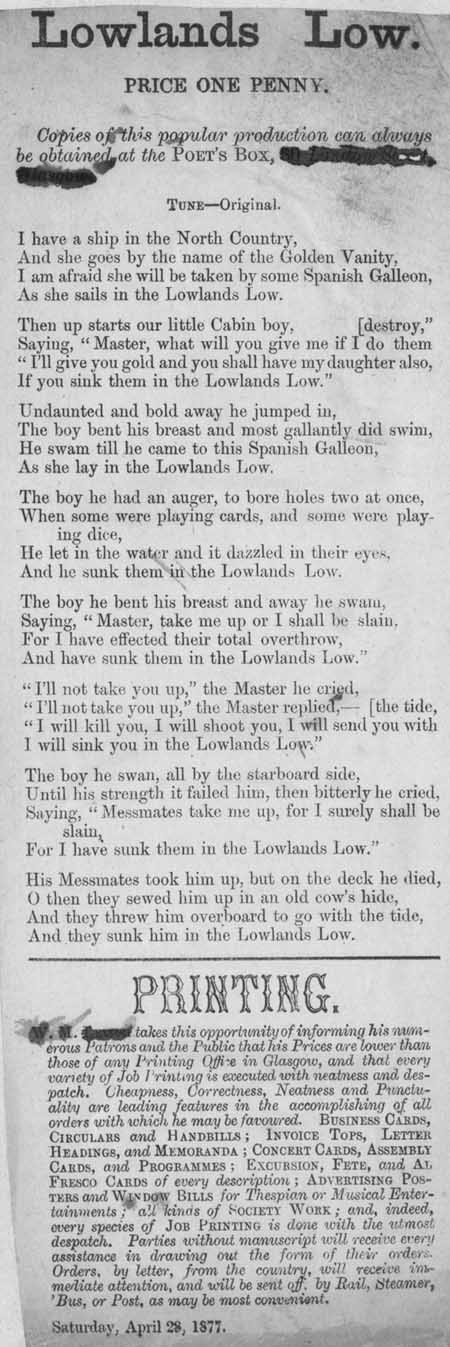Commentary
The first verse reads: 'I have a ship in the North Country, / And she goes by the name of the Golden Vanity, / I am afraid she will be taken by some Spanish Galleon, / As she sails in the Lowlands Low.' This broadside was published by the Poet's Box, possibly in Glasgow, and is dated April 1877. There are a number of different versions of this old ballad, in which the enemy changes nationality from Spanish to French or even Turkish. Also, in some, the young boy is wrapped up in a bearskin before he jumps overboard. They all, however, conclude with the betrayal of the boy. As part of the oral tradition, ballads were passed from person to person down through the generations and were never intended to be written down. Naturally, with each retelling slight variations or embellishments often crept in. This organic process helped to breathe new life into ancient but timeless works.
The Poet?s Box in Glasgow operated from 1849 to 1911. Matthew Leitch was the proprietor at 6 St. Andrew Lane?s, a narrow street on the south side of Gallowgate, from 1850 to 1858. His son William Munsie Leitch worked at the same address from 1859 to 1865 and at varous addresses in London Street until 1911. Many of the broadsides published by the Glasgow Poet?s Box were dated and some carried advertisements, not just for printed items but also for shoe blacking and ?soap for lovers?! Like the other ?boxes? in Dundee and Edinburgh, the Glasgow one sold love songs, sea shanties, parodies and dialogues. It is not clear what the connection between the different Poet?s Boxes were. They almost certainly sold each other?s sheets. It is known that John Sanderson in Edinburgh often wrote to the Leitches in Glasgow for songs and that later his brother Charles obtained copies of songs from the Dundee Poet?s Box. There was also a Poet?s Box in Belfast from 1846 to 1856 at the address of the printer James Moore, and one in Paisley in the early 1850s owned by William Anderson.
Early ballads were dramatic or humorous narrative songs derived from folk culture that predated printing. Originally perpetuated by word of mouth, many ballads survive because they were recorded on broadsides. Musical notation was rarely printed, as tunes were usually established favourites. The term 'ballad' eventually applied more broadly to any kind of topical or popular verse.
View Transcription | Download PDF Facsimile
|
 |
Date of publication:
1877 shelfmark: L.C.Fol.70(122a)
 View larger image
View larger image
|


